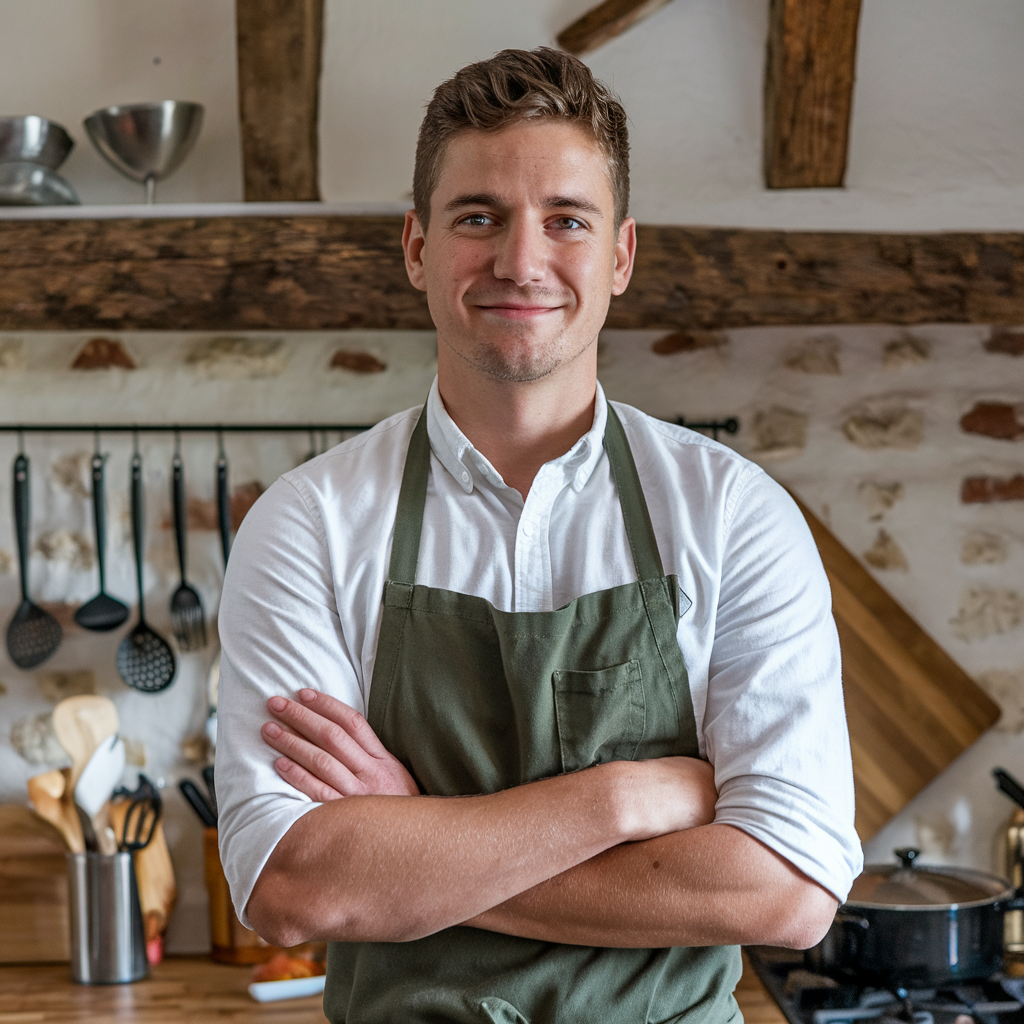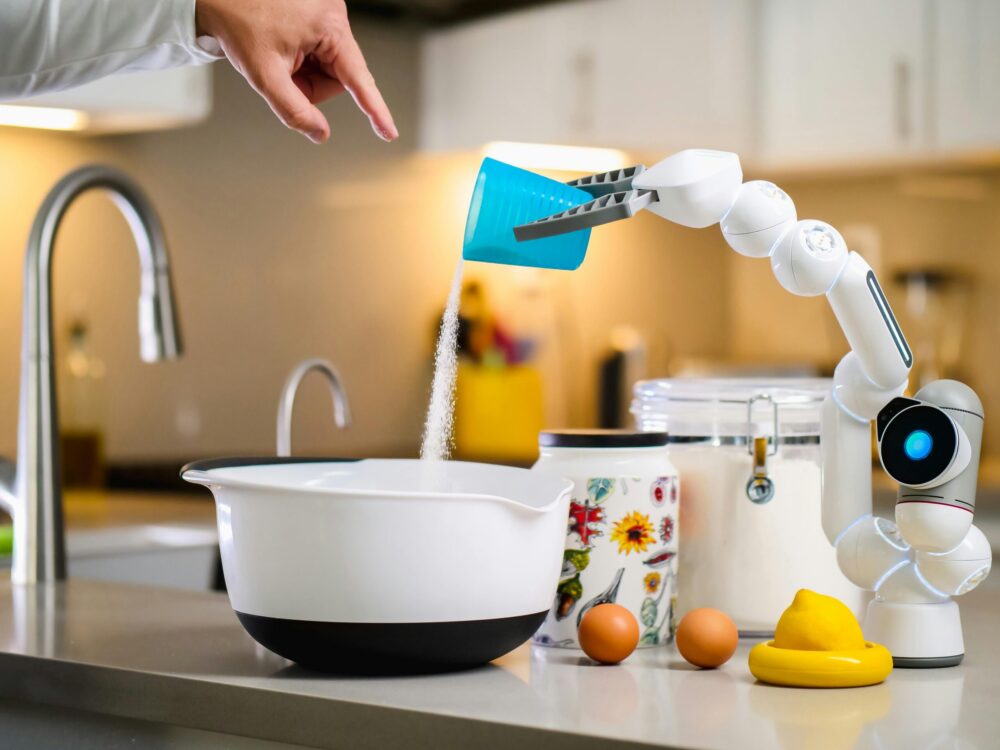Cooking is an art, but it’s also deeply rooted in science. Understanding how ingredients interact at a molecular level can elevate your culinary skills, unlock new recipes, and even prepare you for a career in food science. For aspiring food scientists, educational programs that explore the intersections of biology, chemistry, and physics with cooking provide an engaging way to combine creativity with academic knowledge.
This article explores how you can learn the science of cooking through specialized educational programs, online courses, and hands-on workshops. Whether you’re a curious home cook or an aspiring professional in the food industry, these resources will help you understand the processes behind every delicious bite.
Why the Science of Cooking Matters
Cooking involves more than following recipes—it’s a series of chemical reactions, biological processes, and physical transformations. By understanding the science behind these interactions, you can:
- Perfect Your Recipes: Gain insights into techniques like caramelization, emulsification, and fermentation.
- Innovate in the Kitchen: Experiment with textures, flavors, and presentations using scientific principles.
- Enhance Food Safety: Learn the biological processes behind spoilage and preservation.
- Build a Career in Food Science: Develop products, improve food quality, or work in food technology.
The growing interest in food science has led to the development of educational programs that teach both practical cooking skills and the science behind them.
1. Understanding the Science Behind Cooking
Before diving into programs, it’s essential to understand how biology, chemistry, and physics shape the art of cooking.
Biology in Cooking
- Fermentation: Microorganisms like yeast and bacteria play a role in creating sourdough bread, yogurt, and kimchi.
- Enzymes: Found in ingredients like pineapple and papaya, enzymes help tenderize meat and break down proteins.
- Nutrition: Understanding macronutrients and micronutrients can help balance meals.
Chemistry in Cooking
- Caramelization and Maillard Reaction: These processes create the rich, complex flavors in browned meats, breads, and desserts.
- Emulsification: Combining oil and water in recipes like mayonnaise and vinaigrettes relies on chemical stabilizers.
- pH Levels: Acidic and alkaline ingredients affect flavor, color, and texture.
Physics in Cooking
- Heat Transfer: Learn how conduction, convection, and radiation cook food.
- Hydrocolloids: Ingredients like gelatin and agar create gels and foams.
- Pressure and Temperature: Explore how pressure cookers and sous-vide techniques alter food structures.
2. Educational Programs for Aspiring Food Scientists
Whether you’re seeking formal education or informal learning, numerous programs cater to those interested in the science of cooking.
A. Bachelor’s and Master’s Degrees in Food Science
Formal education in food science combines culinary arts with biology, chemistry, and physics. These programs prepare students for careers in research, product development, and quality assurance.
Top Universities for Food Science
- Cornell University (USA): Offers a Food Science major focusing on chemistry, microbiology, and food systems.
- University of California, Davis (USA): Renowned for its comprehensive food science and technology program.
- Wageningen University (Netherlands): Provides cutting-edge education in food processing and innovation.
Career Opportunities
- Food scientist in research and development
- Quality control specialist
- Sensory analyst for food products
B. Online Courses in the Science of Cooking
For those unable to commit to a full degree, online courses provide flexible, affordable options to learn food science principles.
Popular Online Platforms
- Harvard University’s “Science & Cooking” Course: Available on edX, this course explores the scientific principles behind modern gastronomy. Topics include phase transitions, emulsions, and fermentation.
- Rouxbe Online Culinary School: Offers cooking lessons that integrate science, such as knife skills and heat applications.
- Udemy – Food Science 101: Covers basics like food safety, spoilage, and preservation techniques.
Benefits of Online Learning
- Learn at your own pace.
- Affordable compared to university programs.
- Access to expert instructors and community discussions.
C. Specialized Cooking Workshops
Hands-on workshops and culinary labs are excellent for applying scientific principles in real-world cooking scenarios.
Examples of Specialized Workshops
- Molecular Gastronomy Classes: Learn how to use tools like liquid nitrogen and spherification kits to create innovative dishes.
- Fermentation Labs: Explore the art and science of fermenting vegetables, beverages, and dairy.
- Pastry Science Workshops: Understand the chemistry of baking, from gluten formation to sugar crystallization.
Where to Find Workshops
- Culinary schools like Le Cordon Bleu or the Culinary Institute of America (CIA).
- Science museums and innovation labs offering cooking demos.
- Specialty cooking stores that host interactive classes.
3. Tools and Techniques for Aspiring Food Scientists
Having the right tools and techniques is essential for exploring the science of cooking. Here are some basics to get started:
Tools
- Thermometers: Measure precise temperatures for caramelization or sous-vide cooking.
- pH Meters: Test acidity levels in sauces, doughs, or marinades.
- Precision Scales: Measure ingredients accurately for consistency.
Techniques
- Sous-Vide Cooking: Learn to vacuum-seal ingredients and cook them at precise temperatures for perfect textures.
- Spherification: Turn liquids into caviar-like spheres using calcium chloride and sodium alginate.
- Dehydration: Remove water content to preserve food or create crunchy textures.
4. MasterClass Cooking Classes: Bridging Art and Science
For a premium learning experience, masterclass cooking classes offer insights into the science and artistry of cooking. These programs feature celebrated chefs who explain the scientific principles behind their signature techniques.
Recommended MasterClasses
- Thomas Keller on Cooking Fundamentals: Covers temperature control, knife skills, and emulsifications.
- Dominique Crenn on Modern Gastronomy: Learn how to use molecular techniques to create visually stunning dishes.
- Massimo Bottura on Italian Cooking: Dive into the chemistry of creating traditional dishes with modern twists.
Why Choose MasterClass?
- Gain insights from world-class chefs.
- Understand the “why” behind cooking techniques.
- Apply lessons to both home cooking and professional endeavors.
5. Homeschool Cooking Science Programs for Families
For families and younger learners, incorporating food science into homeschool curriculums is a fun and educational way to explore biology, chemistry, and physics.
Benefits of Cooking Science for Kids
- Develop problem-solving and critical thinking skills.
- Learn math through measurements and conversions.
- Foster creativity and independence.
Recommended Resources
- Kids Cook Real Food: Hands-on classes teaching both cooking and safety.
- Tinkergarten Kitchen Experiments: Explore the science of cooking through simple experiments like making butter or growing yeast.
- America’s Test Kitchen Kids: A platform offering recipes and science activities tailored for young chefs.
6. The Future of Food Science Education
The integration of technology and culinary arts is shaping the future of food science education. From AI-assisted recipe creation to 3D food printing, the possibilities are endless.
Emerging Trends
- Sustainable Cooking Practices: Learn about reducing food waste and using alternative proteins.
- AI in Cooking: Discover how artificial intelligence predicts flavor combinations.
- Virtual Reality Cooking Labs: Immerse yourself in interactive simulations to master advanced techniques.
Final Thoughts: Exploring the Science of Cooking
The science of cooking transforms ordinary recipes into extraordinary experiences. By understanding how biology, chemistry, and physics interact in the kitchen, aspiring food scientists can push the boundaries of culinary creativity.
Whether you enroll in a full-fledged food science program, explore MasterClass cooking classes, or take part in online courses and workshops, the opportunities to learn are vast. Dive into this exciting field today and watch as your culinary adventures evolve into something truly spectacular.


